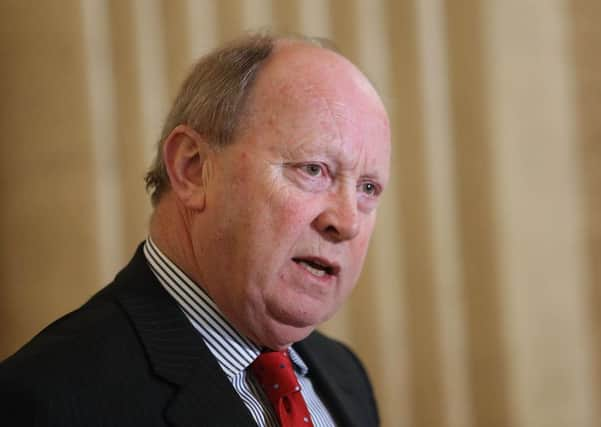Allister condemns '˜dysfunctional' Stormont powersharing


As he launched his party’s manifesto for the Assembly election, Mr Allister insisted the current powersharing arrangements were “dysfunctional and incapable of ever working”.
“There must, there has to be surgical change, root and branch change, to the abysmal failure of the present arrangements,” said Mr Allister.
Advertisement
Hide AdAdvertisement
Hide AdHe said plans to facilitate some form of opposition advocated by other Stormont parties did not go far enough.
The TUV is running 15 candidates in May’s poll. Mr Allister said success would be to increase its representation from the one seat it secured in its first Assembly election in 2011.
As he outlined his manifesto in Belfast, the party leader insisted the TUV had “shone a bright light into the dark corners of Stormont” during the last term.
His speech focused on his belief that only a system of voluntary coalition could bring stable government to Northern Ireland.
Advertisement
Hide AdAdvertisement
Hide AdHe said voters were currently denied the “basic democratic credentials” of being able to vote out a government they did not want.
“We will urge people to pass their verdict on the excruciating failure of the last five years when that which passes for government has lurched from crisis to crisis,” he said
He added: “This system of government will never work, it doesn’t matter how many ‘fresh starts’ it proclaims of itself, because it defies the basic rules of democracy and the basic matters which are afforded across the world in democratic states.”
Mr Allister also commented on the prospect of Sinn Fein emerging as the largest party in the election and Martin McGuinness becoming first minister.
Advertisement
Hide AdAdvertisement
Hide AdThe TUV leader said, in that scenario, he would challenge the DUP not to nominate a deputy first minister - a move that would prevent a new executive from being formed.
Asked if he would have regrets if such a situation prompted the collapse of devolution, he said: “I wouldn’t lose any sleep.”